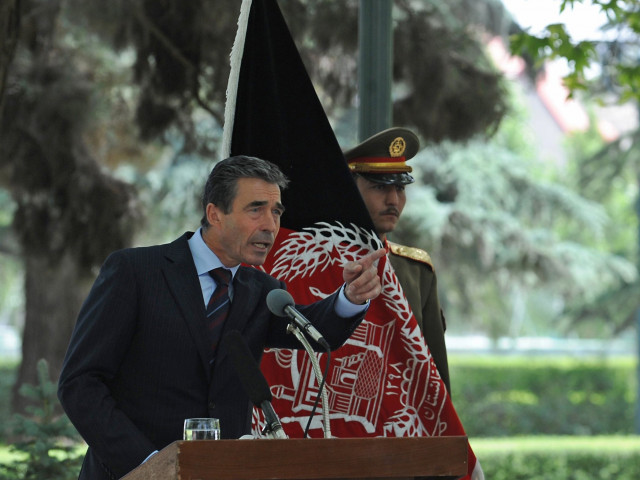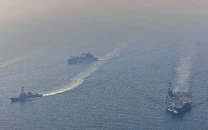Reverse transit: NATO strikes transport deals with 3 Asian states
A reverse transit agreement reached with three Central Asian partners: Kazakhstan, Kyrgyzstan and Uzbekistan.

Nato has struck deals with Kazakhstan, Kyrgyzstan and Uzbekistan to remove equipment through their territories as it winds down the Afghan operation, Nato chief Anders Fogh Rasmussen said on Monday.
“We reached agreement on reverse transit from Afghanistan with three Central Asian partners: Kazakhstan, Kyrgyzstan and Uzbekistan,” Rasmussen told a news conference.
The deal comes ahead of a visit by US Assistant Defence Secretary Peter Lavoy, on a mission to persuade Pakistan to end a six-month blockade on Nato supplies crossing into Afghanistan.
“These agreements will give us a range of new options and the robust and flexible transport network we need,” he added, without offering detail on the accords.
The Brussels-headquartered alliance is also discussing with Russia the possibility of using Vostochny airport near Ulyanovsk, 900 kilometres east of Moscow, as a transit centre for non-lethal equipment from Afghanistan.
Transit routes for the withdrawal are proving a major headache for the US-led Isaf operation in Afghanistan, with massive amounts of materiel dispatched in the decade-long war to be pulled out by the end-2014 deadline from a country ringed by high mountain passes.
‘Still hope’
The US and Pakistan have been at loggerheads over reopening Nato supply lines that Pakistan shut in fury on November 26 when US air strikes killed 24 Pakistani soldiers.
“I still hope that a solution can be found in the very near future,” Rasmussen said on Monday.
Negotiations have snagged over costings, with American officials refusing to pay the thousands of dollars per container that Pakistan has reportedly demanded.
Islamabad initially conditioned reopening the lines on an American apology for the deaths of the 24 soldiers and an end to drone strikes, but neither is likely to happen.
Instead, Lavoy will fly into Islamabad this week in an attempt to break the deadlock, a Pakistani government official told AFP.
“Talks will focus on re-opening the Nato supply route, ways to promote border coordination and settle the issue of the Coalition Support Fund (CSF),” he said.
From 2002 to 2011, the United States paid Pakistan $8.8 billion for its efforts to fight militancy under the CSF, but Islamabad stopped claiming the money after US troops shot dead Osama bin Laden in Pakistan in May 2011.
Published In The Express Tribune, June 5th, 2012.



















COMMENTS
Comments are moderated and generally will be posted if they are on-topic and not abusive.
For more information, please see our Comments FAQ